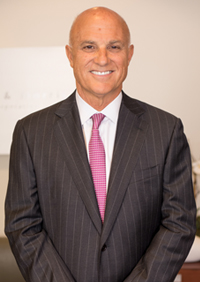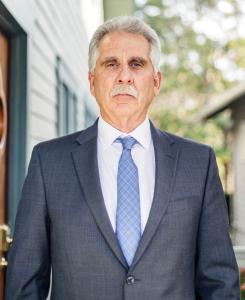
State estimates Estate Recovery Program amounts to $36 million in excess claims for more than 2,100 estates, but complainants estimate number is even larger.
LOS ANGELES, CALIFORNIA, UNITED STATES, August 9, 2023/EINPresswire.com/ — The estate of a deceased nursing home patient is leading the charge against the State of California, alleging the California Department of Health Care Services violates state law in the way it systematically and routinely files claims to collect amounts from the estates of deceased Medi-Cal beneficiaries that grossly exceed the payments for health care services the beneficiary actually received. After being sued by the State for recovery of more than double what it paid, the estate representatives countersued, and their cross-complaint has now been granted class-action status by the court.
The case is Jennifer Kent, Director of the Department of Health Care Services, vs. Hardie B. Phillip, as successor trustee of the Theodosia M. Phillip Trust and individually, et al., San Luis Obispo Superior Court, Case No. 17CV-0261. The law firms representing the Phillip family and the certified class are Gianelli & Morris of Los Angeles and Ernst Law Group of San Luis Obispo.
The case began when the State of California filed a lawsuit against the Phillip family seeking recovery of nursing care expenses paid by the State through a Medi-Cal managed care plan. The Phillip family filed a cross-complaint alleging the State is violating the law by attempting to recover more than the amount actually paid for services actually received. This cross-complaint was recently granted class certification in the San Luis Obispo Superior Court on August 2.
The facts as laid out in the cross-complaint relate that Theodosia Phillip was a nursing home patient in California covered by Medi-Cal through a managed care plan. Her managed care plan paid $106,672.71 for the nursing care Ms. Phillip actually received. But when she died, the State of California presented an “estate recovery claim” demanding that her estate repay $261,957.40 in “capitation” the State remitted to the managed care plan for her enrollment – two and one-half times the cost of care she actually received. As noted in the cross-complaint, California’s Welfare and Institutions Code Sec. 14009.5 limits the state’s right of recovery to “an amount equal to the payments for the health care services received.”
Through her attorneys, the Phillip family offered to repay the amount paid for her actual medical services, but the State rejected this offer and sued for the higher amount.
In defending the lawsuit filed against them, the Phillip family filed a cross-complaint, asserting a class action claim on behalf of all Medi-Cal beneficiaries who were similarly subjected to what they consider unfair estate recovery claims for amounts never spent on their actual care. Robert S. Gianelli, an attorney representing the Phillip family, says that Medi-Cal is limited in the repayment it can seek from deceased Medi-Cal beneficiaries through the Estate Recovery Program. “Repayment only applies to benefits received after age 55, and only if the deceased beneficiary owned assets at the time of death,” says Gianelli. “Importantly,” Gianelli continues, “repayment is supposed to be limited to actual payments made for actual services received.”
The class-action complaint alleges that the State was told as much by the Ninth Circuit Court of Appeals as far back as 1990 in Pottgieser v. California Department of Health Services, Case Nos. 88-15762, 15052. The court in Pottgieser ruled the statute means what it says when it limits a state’s reimbursement claim to “an amount equal to the payments for the health care services received.”
“But the state has continued to misapply the estate recovery law in a way that takes unfair advantage of the survivors of deceased seniors,” Gianelli says. According to the allegations in the complaint, an investigation into the case on behalf of the Phillip family shows that the State’s standard procedure is to demand repayment from a beneficiary’s estate based on the amount of “capitation” the state paid to enroll such a beneficiary in a managed care plan, without any consideration of how much that managed care plan actually paid for care actually received.
Court Certifies Class of Medi-Cal Beneficiaries Subject to Excess Estate Recoveries
A hearing on the cross-complainant’s motion for class certification was held on August 2, 2023. Phillip’s motion for class certification was granted, and the court certified the requested class. The Honorable Tana L. Coates of the San Luis Obispo Superior Court certified the class action over the State’s opposition, ruling that the matter would proceed as a class case on behalf of all Medi-Cal beneficiaries who are similarly situated.
In two prior important rulings on the merits of the case, Judge Coates rejected the State’s argument that its estate recovery program was lawful. In these rulings, Judge Coates held that the plain language of California’s estate recovery statute only allows recovery of the amount paid for services actually received (Notice of Ruling Following Plaintiff’s Motion for Judgment on the Pleadings, filed Jan. 22, 2019; Notice of Ruling on Motion for Summary Judgment, filed Oct. 28, 2021). However, papers filed with the court show the State admits that it systematically claims the amount of capitation paid to the beneficiary’s managed care plan without any consideration of what was paid for actual services by the managed care plan (Memorandum of Points and Authorities in Support of Plaintiff’s Motion for Summary Judgment).
By the State’s own estimate, this practice has directly affected 2,155 estates in an amount of approximately $36 million. This estimate includes money the State has already collected as well as excess claims that have been asserted by the State but not yet collected. Attorneys for the Phillip family estimate the total impact to be even greater than the $36 million figure put forward by the State, with approximately 4,220 affected claims with an excess recovery asserted of more than $68 million.
“The State is unlawfully charging deceased beneficiaries’ estates for capitation which was never used for any services she actually received. Whether this money ends up paying for a different beneficiary’s services or as managed care plan profit, is it not recoverable by the State as a matter of law”, stated class attorney, Don Ernst.
A trial date has been set for March 5, 2024.
Carter P. Spohn
Gianelli & Morris, A Law Corporation
+1 213-489-1600
email us here
Visit us on social media:
Facebook
![]()




